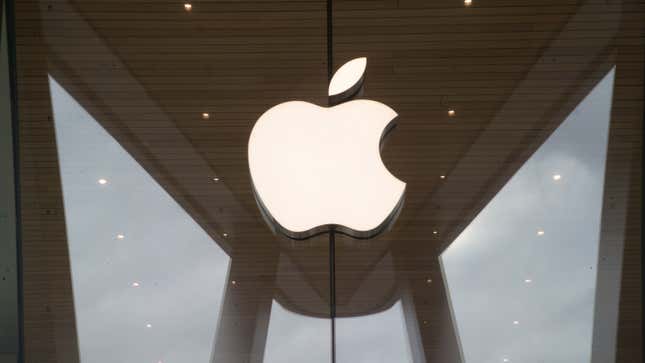
Apple has activated a “dormant software lock” that effectively kneecaps third-party replacement batteries on some newer models of iPhone, according to a report from iFixit on Wednesday, by disabling access to battery health data unless the replacement has been installed by Apple or an authorized service provider.
iFixit wrote that this appears to be an intentional feature in which replacement batteries lacking a Texas Instruments microcontroller with a unique Apple authentication key are locked out of providing certain battery health data to users. That includes cycle count, which indicates how much a battery may have degraded, as well as max capacity and peak performance capability. In its place users are greeted with a “Service” indicator in a not-so-subtle hint that they should take their phone to a Genius Bar or authorized Apple repair service.
Even using another Apple battery doesn’t work, according to iFixit, as a replacement battery can apparently only be authenticated using the company’s internal tools:
Put simply, Apple is locking batteries to their iPhones at the factory, so whenever you replace the battery yourself—even if you’re using a genuine Apple battery from another iPhone—it will still give you the “Service” message. The only way around this is—you guessed it—paying Apple money to replace your iPhone battery for you. Presumably, their secretive diagnostic software can flip the magic bit that resets this “Service” indicator. But Apple refuses to make this software available to anyone but themselves and Apple Authorized Service Providers.
iFixit compared the practice to having a “Check Oil” light in a vehicle that can only be deactivated at a Ford dealership. According to their report, the software lock appears to have been introduced to iPhone XR, iPhone XS, and iPhone XS Max models running the latest iOS 12 version or the iOS 13 beta.
As Apple Insider noted, Apple appears to have alluded to the software lock in support documents last updated in March 2019 that direct users to its official battery replacement program. Documentation for the microcontroller also details its capability to carry out the software lock in question.
iFixit wrote that Apple also appears to have blocked most iOS apps from accessing battery health statistics dating back to iOS 10, but the issue can be circumvented by plugging an iPhone into a Mac computer running an app like coconutBattery. One can also remove the microcontroller from an original battery and solder it to another, though this is probably beyond the ability of all but the most committed users.
Strangely, in March 2019 reports indicated that Apple was changing its repair policies to allow authorized service centers to fix iPhones that have had third-party batteries installed. For owners of the models in question, this must feel like a 180. It’s also perhaps not the best public relations move given that another Apple controversy involving performance throttling of iPhones with older batteries is quite fresh in its customers’ memory.
Apple has long fought right to repair legislation, which is designed to prevent manufacturers from voiding warranties or discontinuing support if consumers have third parties carry out a repair. There’s an obvious financial incentive here, in that by refusing to sell fresh parts to or warning customers against using third party repair shops, Apple can charge rates reported to be significantly higher than might otherwise be available.
In response to growing lobbying for right to repair bills, Apple has insisted that it is motivated by controlling the quality of repairs and safety concerns (particularly relevant in situations like swollen batteries) rather than money.
“We want to make sure our customers always have confidence their products will be repaired safely and correctly, and in a way that supports recycling,” an Apple spokesperson told Axios when asked about letters and testimony provided by right to repair advocates for an upcoming House Judiciary Committee hearing. “We are continually growing our network of certified technicians and most recently announced that any Best Buy store in the U.S. is now an authorized service provider.”
Gizmodo has reached out to Apple for comment, and we’ll update this piece if we hear back.
[iFixit]